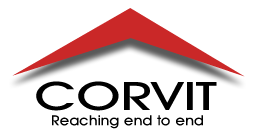ENTREPRENEURSHIP
Become an effective business leader to foster a culture of innovation by learning theory and practice of entrepreneurship.

COURSE DESCRIPTION:
Wouldn’t it be nice to be your own boss, work on your own schedule, and make money doing something that you’re passionate about? Millions of people around the world are living that dream and running their own business.This three-day course will teach you the basics of entrepreneurship. You’ll consider if entrepreneurship is right for you and learn the basic steps of creating your own business. At the end of the course, you’ll have a solid foundation to start your entrepreneurial journey.
COURSE OUTCOMES:
This three-day workshop will help you teach participants how to:
- Identify the traits of an entrepreneur and assess their entrepreneurial capabilities
- Outline and evaluate a business idea
- Develop a product idea
- Identify their target market and customers
- Develop a value proposition
- Understand different types of business ownership and structures
- Evaluate franchising and business purchasing opportunities
- Create a pitch deck, executive summary, company presentation, technical white paper, and business plan
- Create financial projections for their business
- Identify where to find business funding
- Create a product development plan, marketing plan, and sales strategy
- Identify ways to protect their intellectual property
- Describe effective ways to brand their product
- Choose the right location for their business
- Launch and grow their business
- Demonstrate the behaviors of an entrepreneurial leader
- Find appropriate resources to help them on their journey
AUDIENCE:
- Relationship manager
- Sales manager
- Marketing manager
COURSE OUTLINE:
At a glance
What you'll get
- Facilitator-led discussion
- Interactive group sessions
- Self-reflection activities
- Skills practice and group discussion
Duration
3 days
Maximum group size
Upto 20 people per group
You will spend the first part of the day getting to know participants and discussing what will take place during the workshop. Students will also have an opportunity to identify their personal learning objectives.
To begin the course, participants will review their pre-assignment, which asked them to consider what entrepreneurial characteristics they have.
Next, participants will learn about other resources that they can leverage.
In this session, participants will learn how to find, outline, and assess business ideas. They will get some hands-on practice by working on a business concept of their own. To wrap up the session, participants will learn how to evaluate their capacity for risk and what role this plays in their business plan.
This session covers developing a product idea, identifying your target market and customers, developing a value proposition, and creating financial projections.
Next, participants will learn about the different configurations that a business can take, as well as some terms that are unique to entrepreneurship. They will also consider the advantages and disadvantages of purchasing a franchise or an existing business.
The second day of the course will start with information on creating a pitch deck, executive summary, company presentation, technical white paper, and business plan.
This session will begin with an overview of financial statements. Participants will also explore options for funding their business.
In this session, participants will learn a seven-stage process for developing a product. They will also learn the basics of intellectual property protection.
This session covers the six stages of the marketing cycle, which includes creating a marketing plan with the six P’s. Information about leveraging social media and building your sales force is also included.
To begin the third day of the course, participants will learn the basics of branding, including how to develop a brand name, slogan, and logo.
In this session, participants will learn tips for choosing a business location. They will also consider the pros and cons of a home-based business as well as working on the road.
This session will give participants some things to do before, during, and after the business launches. We will also share tips for setting up the business’ structure and getting the right people on board.
Next, participants will learn ways to monitor their business’ progress, strategies for growth, signs of trouble, and techniques for staying motivated.
This session will explore entrepreneurial leadership characteristics. Participants will also learn about Michael Gerber’s three perspectives and how to use them to grow their business.
To wrap everything up, participants will review a checklist for building their business and identify their next steps.
At the end of the course, students will have an opportunity to ask questions and fill out an action plan.

